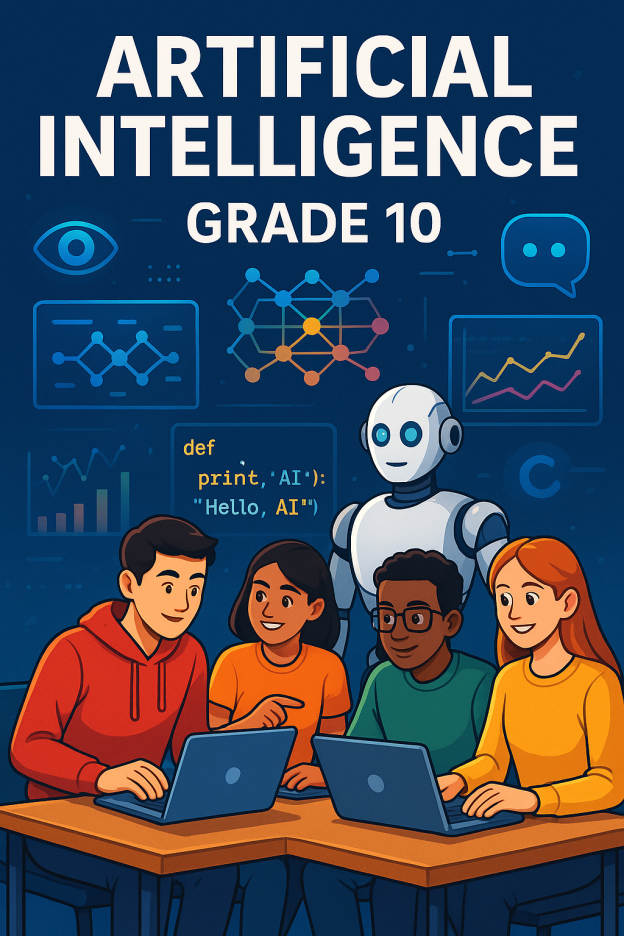Step into the next level of Artificial Intelligence with the Grade 10 CBSE curriculum! This engaging course empowers students to deepen their understanding of AI concepts, ethics, and real-world applications. Learners will explore advanced AI project cycles, experiment with data science and machine learning tools, and create meaningful projects using computer vision and natural language processing. Through hands-on activities—including Python programming—students will develop analytical skills, ethical reasoning, and the confidence to build AI solutions for today’s world.
Key Features:
- Advanced exploration of the AI Project Cycle, including problem scoping, data handling, modeling, and deployment
- Deep dive into ethics and responsible AI (bias, fairness, privacy)
- Hands-on experience with open-source AI tools (Orange, Teachable Machine, Lobe, etc.)
- Introduction to computer vision (image classification, object detection) and NLP (chatbots, sentiment analysis)
- Real-world projects and portfolio development linked to the UN Sustainable Development Goals
- Beginner-to-intermediate Python programming for data handling and AI
Who should join?
Grade 10 students who are curious about technology, interested in coding and real-life applications, and ready to take their AI skills to the next level. No advanced coding required—just a growth mindset!
Learning Objectives – Artificial Intelligence (CBSE Grade 10)
By the end of this course, students will be able to:
- Describe key concepts, domains, and the project cycle of Artificial Intelligence, including advanced modeling and evaluation techniques.
- Apply ethical frameworks to real-world AI challenges, identifying issues such as bias, fairness, transparency, and privacy.
- Collect, analyze, and visualize data using modern, no-code and low-code AI tools.
- Develop and evaluate machine learning models using classification, regression, and clustering techniques.
- Build practical projects in Computer Vision (e.g., image classification, feature extraction) using accessible tools and Python libraries.
- Experiment with Natural Language Processing to create and test chatbots, perform text analysis, and understand how AI processes language.
- Write and run basic-to-intermediate Python programs for data science, image processing, and simple AI applications.
- Collaborate effectively, communicate results, and document the AI project cycle through reports, presentations, and a personal portfolio.
- Reflect on the societal and environmental impact of AI, connecting classroom learning to the Sustainable Development Goals (SDGs).
- Demonstrate readiness for advanced AI study and 21st-century tech careers through practical problem-solving, ethical reasoning, and digital fluency.
You must log in and have started this course to submit a review.


